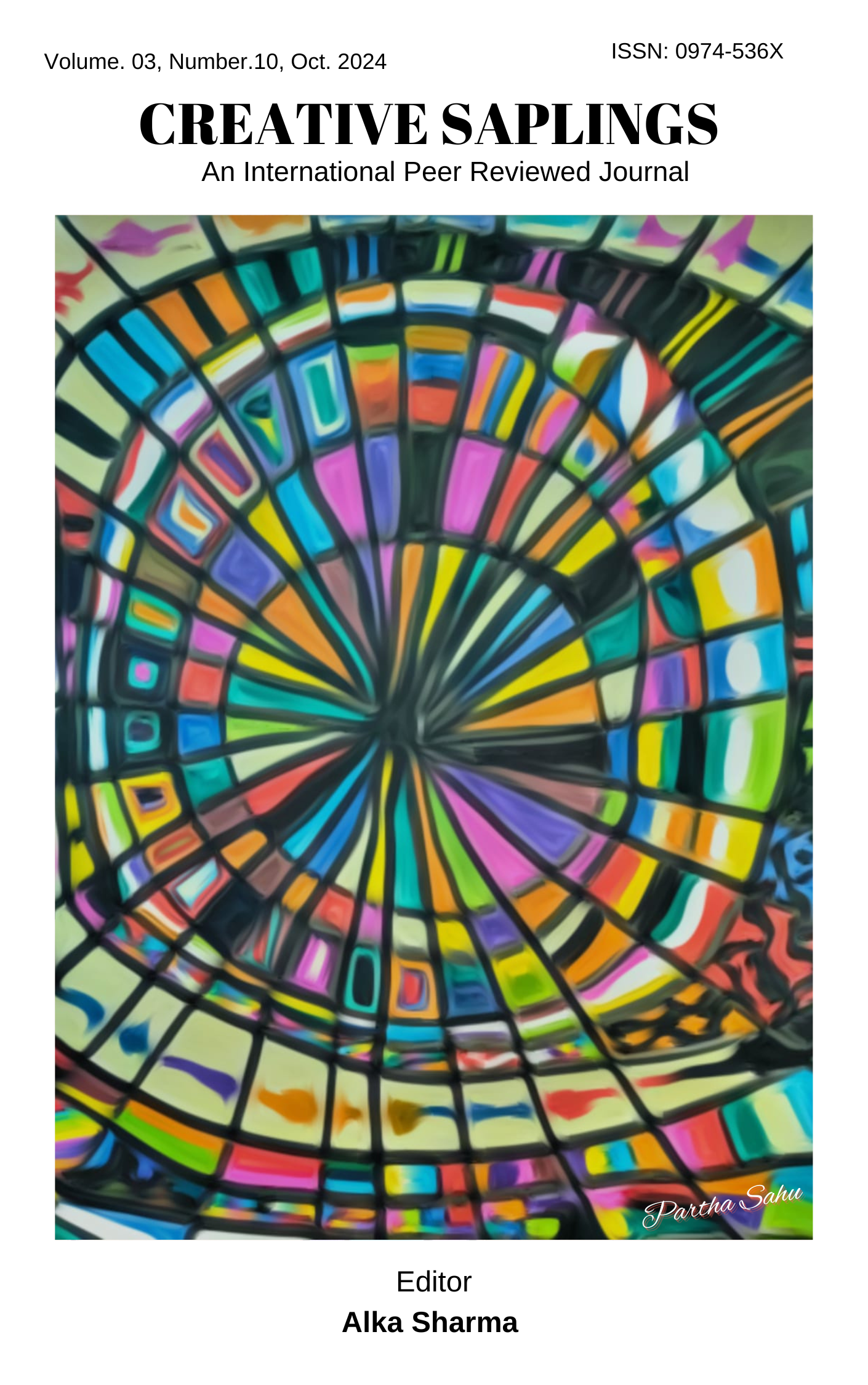Agha Shahid Ali’s “Call Me Ishmael Tonight”: A Study of Championing Urdu Ghazal in the English Occident
DOI:
https://doi.org/10.56062/gtrs.2024.3.10.784Keywords:
Agha Shahid Ali, Call me Ishmael Tonight, Ghazal, English, canon.Abstract
Modern poetry in English, unlike other languages, features poetic genres such as epic, ode, ballad, lyric, sonnet, and other. English as a lingua franca has espoused foreign genres: haiku, tanka villanelle, and Ghazal. However, the institution of “Ghazal” was thoroughly a novel experimentation. As an Eastern poetic form, Ghazal strictly adheres to the conventional pattern of meter, rhythm, refrain, and notably nom de plume “takhallus.”. Notably, Agha Shahid Ali initiated the ghazalesque tradition in English with the edition of “Ravishing DisUnities”. Drawing on the same lines, this research paper will deconstruct the elements concerning Ali’s thematic prospects, poetic schematization, pattern formation, and rendering of exotic archetypes in what he calls ‘True or authentic Ghazal’. It delves into an extract, “By Exile” from the collection “Call Me Ishmael Tonight - 2003.” Displaying how, through his unique artistic inclination & craftsmanship, he added to modern American poetry the charisma of ghazal tradition. Nonetheless, as a poet, Ali’s literary accomplishment hinges on introducing the oriental Arabic, Indo-Persian poetic form of Urdu Ghazal to the Occidental galaxy of literature. Skilfully maneuvering the model Urdu as a means for Ghazal, well pioneered insurmountable stature as an ambitious Anglo-Kashmiri poet who revolutionized this conventional form and made it accessible to non-native audiences of English. Indubitably, Ali has firmly established his presence in poetry as a champion of English ghazal, ‘not of an age, but for all times’ as per (Johnsonian locution).
Downloads
References
Ali, A. S. (2000). Ravishing Disunities: Real Ghazals in English. Wesleyan University Press.
Faiẓ, F. A. (1991). The Rebel’s Silhouette: Selected Poems. Univ of Massachusetts Press.
Ali, Agha Shahid. The Veiled Suite: The Collected Poems. WW Norton & Company, 2009
Woodland, M. (2005). Memory’s Homeland: Agha Shahid Ali and the Hybrid Ghazal. English Studies in Canada, 31(2), 249–272. https://doi.org/10.1353/esc.2007.0036
Ali’s, Agha Shahid. “Writing/Adapting Ghazal in English: A Select Study of.” Dialog 37 (2021): 123-136.
Werner, Louis. “A Gift of Ghazals.” (2002).
Zaidi, Nishat, and Agha Shahid Ali. “Centre/margin dialectics and the poetic form: The ghazals of Agha Shahid Ali.” (2008).
Ali’s, Agha Shahid. “Writing/Adapting Ghazal in English: A Select Study of.” Dialog 37 (2021): 123-136.
Abidi, S. A. R. “AGHA SHAHID ALI: A TRUE CHAMPION OF ENGLISH GHAZAL.” International Journal of English Learning & Teaching Skills 1.4 (2019): 342-346.
Sarker, Asima. “Home, Exile and the ‘Other ‘in Agha Shahid Ali.” The Literary Criterion (2019): 1-2.
Said, Edward W. Reflections on exile: and other literary and cultural essays. Granta Books, 2013.
Volková, Bronislava. “Introduction: A General History of Concepts of Exile”. Forms of Exile in Jewish Literature and Thought: Twentieth-Century Central Europe and Migration to America, Boston, USA: Academic Studies Press, 2021, pp.1119.https://doi.org/10.1515/9781644694060-002
Damrosch, David. “Foreword: Literary Criticism and the Qur’an.” Journal of Qur’anic Studies 16.3 (2014): 4-10.
Downloads
Published
Issue
Section
License

This work is licensed under a Creative Commons Attribution-NonCommercial 4.0 International License.






